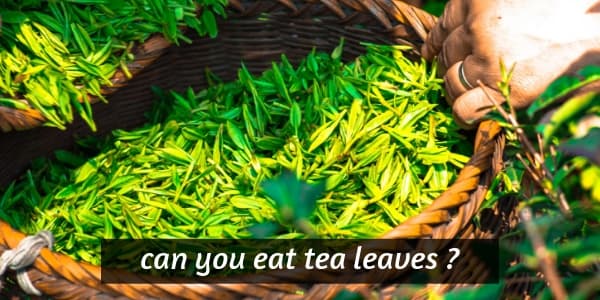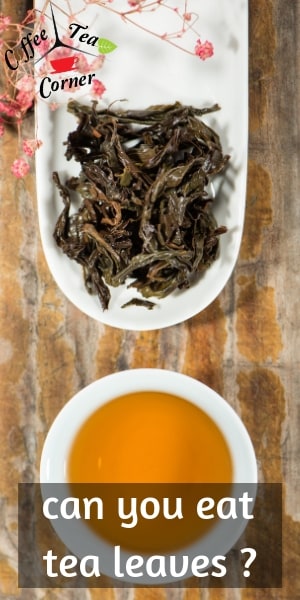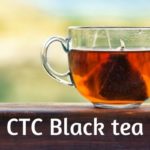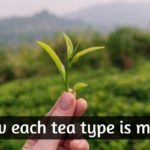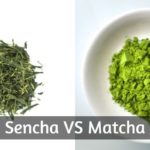If you're trying to eat tea leaves for maximum health benefits, you'll want to read this. Tea works in a surprisingly simple way, and getting its benefits has been a goal even since we figured out tea leaves help our metabolism.
This is true for all tea leaves, since they are all made of the same tea plant. Even the fermented Pu'er teas. So let's see if you can eat tea leaves, and them see if you should.
Table of Contents
So can you eat tea leaves ?
Yes, you can eat tea leaves. They are edible both raw and steeped. They are currently not banned from eating and are not a health hazard.
If you want to eat tea leaves, it's best to eat them after steeping. They are softer and easier to digest this way.
Some people eat tea leaves in order to get the maximum benefits from their tea. They've reported no problems and their digestion is apparently fine.
However many components of tea, which we treasure, are only released in hot water. Eating tea leaves whole will not help, in fact it might just be counterproductive.
Caffeine content is not a problem, since about 80% of it is released in your brew. Eating the leaf whole won't help much. Not to mention the taste would be hard to deal with.
It's a topic that going to require discussing some finer points, and we'll touch on the topic of Matcha as well. So let's start with how you get the benefits from your cup of tea in the first place, so we can understand why eating them will not help very much.
How you get the benefits from your tea
Your cup of tea, be it green or white or black, is going to have a certain amount of caffeine, and the accompanying antioxidants.
You'll only get the benefits of the tea if you infuse it. This means using the tried and true method of steeping it in hot water for several minutes, and drinking the resulting infusion.
The important elements in tea will be steeped, along with the flavor and caffeine. You can reuse the tea leaves a second and a third time, since a small amount of component is still present in already steeped leaves.
Each subsequent cup will be poorer and poorer. This is not true for the Pu'er tea, which will gladly give even 10 cups of tea.
But for standard teas, of all colors, the amount of antioxidants and caffeine is pretty much all gone with the first steeping.
So this means that eating used, moist tea leaves would be pretty pointless. There is very little to be gained by them.
The components we all very much love and treasure can only come out through a bit of heat and water. They are water soluble.
So eating whole tea leaves will not grant you more benefits than drinking the infusion, because the antioxidants and caffeine will not be drawn out of the leaves.
Your stomach will start digesting them right away, and breaking them apart, rather than letting them exert their influence.
Again, this applies to every kind of tea made from the Camellia sinensis plant. So green tea, white tea, black tea, Pu'er tea, oolong, and anything else I might've missed.
At their base, all teas are the same. They were processed a bit differently and from younger or older leaves, but their overall effect is the same.
A few health concerns with eating tea leaves
There are some health concerns regarding whether you should even attempt to eat tea leaves or not. This is something you really might be interested to hear, since if you do eat the leaves this is how they could impact your digestive system.
There could be constipation if you ingest too many tea leaves
This has to do with the structure of tea leaves. Taste aside, tea leaves are made like any other leaves. They contain lots of fiber, some protein, and a certain water content.
Their fat content, if any, is very very low.
The rest is their antioxidants and caffeine content. But the bulk of the leaf is the fiber.
That fiber is very hard to digest, especially in larger leaves. This means that older leaves, which have had more time to mature, will be harder to digest. Like the ones used for black tea, for example.
Then again, you wouldn't be eating many tea leaves at a time. Not only will the taste put you off, but the bitterness in the leaves will actually require you to drink lots of water.
So I think the average Joe wouldn't be able to eat more than a teaspoon of tea leaves in one sitting. Unless said Joe was really into tea leaves, I guess.
Even so, that amount of tea leaves would be safe, but barely. Your body cutting through all that fiber will take some time. And there are some fibers that simply won't break down, and will end up being passed through your gut the next morning.
In some people, this could lead to some constipation, or some very difficult bowel movements.
Your stomach might be upset after eating tea leaves, especially green tea
I know this is true for me, and for others I've spoken to about tea in general. Green tea, being so astringent, does upset the stomach at times. This is especially true if you're on an empty stomach, and you drink green tea first thing in the morning.
This is the same reason you should not drink lemon water on an empty stomach, or even coffee.
Your stomach will be prompted to produce more gastric acid when it senses 'food' coming, and being met with an acidic brew does not help one bit.
Now giving your awaiting stomach green tea leaves to munch on is not going to be very good either, if there is nothing else accompanying them.
A little bit of food or a small healthy snack should be there with the tea leaves, if you decide to eat them.
(If you like this article so far, you can pin it to your Pinterest board by clicking the image below. The article continues after the image.)
Some tea farms use pesticides to control their crops
Not every tea farm, but many tea farms use pesticides to control their crops. This is done to maximize the yearly yield of leaves by killing any bugs or pests that might find their way onto the tea plantation.
For humans these pesticides are usually harmless, since they do not dissolve in water and will not affect the taste of the tea.
So in short, if you brew your tea in hot water and only drink the infusion, it should be pesticide-free. But if you decide to ingest the leaves, you might just get them.
If you're still bent on eating tea leaves, make sure you source them from a farm that does not use pesticides to protect their tea.
Conclusion on whether you can or should eat tea leaves
Yes, you can eat tea leaves. They're edible, and in some places in the world they're even part of the local cuisine. However eating them for the health benefits will not grant your wish.
The health benefits of tea, of any kind, are best gotten through the age-old method of brewing the tea and drinking the infusion. If anything, tea leaves could upset the stomach if eaten in too large a quantity.
In the case of Matcha, there is a bit of a debate.
The case for Matcha, and why it's different from eating whole leaves
Alright, we've talked about whether tea leaves can be eaten, and whether they're safe to eat in the first place. What about Matcha, then ?
Good point, and one I'm sure many people have pondered over the years. So here's my take on it, and I'll present to you my logic, so you can figure out if we're on the same page or not.
Matcha is, for all intents and purposes, green tea. A very finely grown, very delicate green tea. But still green. Once the leave are processed and dried, they're ground into a very fine powder and that's what you're going to mix int your hot water.
This is important, remember the hot water.
If you were to just take a spoonful of Matcha and eat it, like simple tea leaves, the effect would be the same. That is, a waste of perfectly good tea. No health benefits there, just a need for a glass of water.
But if you brew Matcha just the way it was meant to be brewed, then you're getting the best results.
This is because the hot water will infuse the tea powder, even if it's already in such a small form. Remember tea bags ? Those infuse quicker than whole leaves.
The same way, tea powder infuses faster than whole leaves, or even bags at that.
So your cup of hot Matcha, very well mixed and frothy, is going to give you all the health benefits of green tea, and then some. The fact that you're ingesting the powdered tea leaves does not add that very much though. It's all in the components of the Matcha leaves.
As for Matcha smoothies, ice creams, cakes, and other fancies, they're pretty pointless from a health benefit viewpoint. A Matcha latte will not be healthy.
The Matcha cancels out in milk or dairy, and you'd need a whole lot of sugar to make it taste nice in a long, frothy drink. The usual way to serve Matcha is a very small bowl, much like a shot of liquor.
Final thoughts
Whether you choose to eat tea leaves or not is up to you. My recommendation is that you do not eat tea leaves, since they won't do you much good.
The best way to enjoy the health benefits is to brew them in how water.
If you're looking for a compromise you should opt for Matcha, since it's as close as you're going to get to eating tea leaves and still having some health benefits.
If you want to know more about coffee or tea, feel free to check the related articles below. Who knows what else you might find ?

